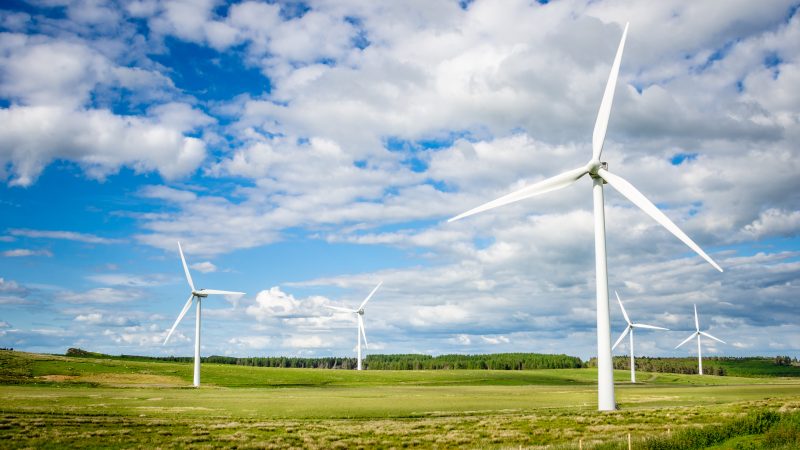
Everyone knows what a good job is. It’s one that pays the bills, provides stability and certainty, enables a decent work-life balance and where there are progression opportunities at an employer who treats you well. Fighting to make work like this for all is the founding mission of the trade union movement: making sure that jobs are good and that work pays.
But while everyone knows a good job when they see one, people aren’t clear on what a green job is. That’s the clear finding of focus groups Prospect recently ran with More in Common. For all the talk of net zero, clean energy and a just transition, outside of those of us who live and breathe this topic, there’s confusion about what a green job is and – crucially – whether it’s going to be a good one.
And that’s the problem. Too often politicians and policymakers talk down to the public, expecting everyone else to catch up with the programme. We need to stop broadcasting ‘green’ at people and start involving the public and communities in the discussion if we want to succeed.
People aren’t clear what a green job is – or whether it’s for them
When we asked voters in West Cumbria and Great Yarmouth what a green job was, the answer was outdoor and nature workers, litter pickers, street cleaners, farmers and zero waste food store shop assistants rather than a career in nuclear or renewable energy.
And though people were open to doing a green job – they saw enjoyment and fulfilment as important elements of good work – what mattered most to them was the job being a good one. “Decent, good, well-paid jobs” that “pay the bills” are the top concern, and “how good it is for the environment” is “not top of my priority list”.
That doesn’t mean there’s hostility to green jobs. Indeed, a job being green would be “a fantastic bonus”. But there’s a demonstrable gap between policy and people. Talk of green jobs isn’t enough. We need to explain what they are: solar panel installers, wind turbine engineers, insulation manufacturers and installers.
Who these jobs are for matters too. If you don’t understand what a green job is, then you’re not going to think it’s for you – and our focus group members didn’t think these jobs were accessible to people like them because of this. Concerns around pay were another major barrier to considering a green job: they were imagined to be poorly paid and taken up because of a passion for the environment, rather than the need to make money.
We’ve also got to be clear on where these jobs are: outside of major cities; in small towns and coastal and country communities – providing jobs in places where opportunities have been too limited for too long.
Place is important: people support and believe in the potential of good jobs in industries they know. No surprise then that there was much more support for new nuclear power in West Cumbria – with its rich history in atomic energy – than in Great Yarmouth. People want certainty and tangibility – not just green jobs somewhere at some point in the future, but good jobs here and good jobs now.
Green jobs must first and foremost be good jobs
Rishi Sunak’s recent about turn suggests he’s heard similar evidence. But in scrapping targets and watering down net zero commitments, the Prime Minister has come to the wrong conclusion. As the Conservative Environment Network has pointed out, his intervention threatens green investment in Britain and will make climate impact more expensive. The Prime Minister is risking the UK being the kind of place where companies want to invest in creating good jobs in the first place.
That makes it all the more important for those of us fighting for the UK to benefit from this great industrial transition to frame our arguments in a way that wins over voters.
There are many examples of good careers across the clean power sector, but there are still too many employers failing to work with unions and offer their workers decent terms and conditions.
Labour’s proposal to require companies bidding for renewables work in the UK to offer good work, decent pay and union recognition is rightly mirroring President Joe Biden’s successful Inflation Reduction Act approach in the US. This is critical in securing a just transition for those working in the high carbon energy sector, where strong unions have won pay and conditions that are not yet universally matched by their emerging competitors.
Jobs in clean energy can’t be seen to be “a sort of luxury” that “people can’t afford to go into just because they’re green” – they’ve got to be good jobs first and foremost and be seen to be such.
At Labour Party conference earlier this month, I launched Prospect’s new publication Delivering good clean energy jobs and spoke about how unions and industry can work together to deliver good jobs in clean British energy. And I did my best not to use the phrase ‘green jobs’.




More from LabourList
‘SEND reforms are a crucial test of the opportunity mission’
Delivering in Government: your weekly round up of good news Labour stories
Labour place third in Gorton and Denton by-election as Greens gain seat